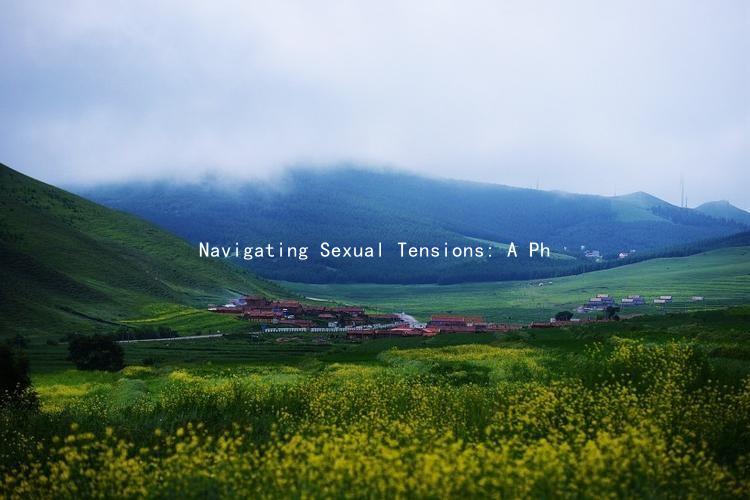Navigating Sexual Tensions: A Philosophical Approach to Relationship Conflicts
Navigating Sexual Tensions: A Philosophical Approach to Relationship Conflicts
In the complex tapestry of human relationships, sexual tension often serves as both a spark and a source of conflict. This duality sparks questions that reach far beyond the immediate circumstances, inviting us to explore the philosophical dimensions of desire, intimacy, and communication. Understanding sexual tension through a philosophical lens can not only help us navigate our relationships more effectively but also lead to deeper self-awareness and fulfillment.
At the core of sexual tension lies the intricate interplay of attraction and vulnerability. As human beings, we are wired for connection, yet our desires can create feelings of anxiety and uncertainty. The philosopher Søren Kierkegaard once posited that anxiety is the price of freedom—that it stems from our awareness of choice and the potential outcomes of our actions. In romantic relationships, this is particularly relevant. The choices we make regarding intimacy can lead to both exhilarating experiences and profound conflicts. Acknowledging this anxiety allows us to approach our relationships with a more nuanced understanding, recognizing that our feelings of tension are a natural part of shared intimacy.
When navigating sexual tensions, open communication emerges as a crucial tool. However, we often find ourselves hesitating to express our desires or concerns, fearing judgment or conflict. The philosopher Martin Buber emphasized the importance of genuine dialogue, encapsulated in his concept of the I-Thou relationship, where each partner enters an authentic space of mutual respect and understanding. Cultivating a relationship grounded in I-Thou communication facilitates honest discussions about sexual desires and boundaries. Couples can establish a safe environment where they are free to share their feelings without the fear of rejection or ridicule—transforming moments of tension into opportunities for growth.

Moreover, embracing vulnerability enhances intimacy. The philosopher Alain de Botton highlights that love thrives in the realm of uncertainty and imperfection. By acknowledging our own vulnerabilities and those of our partners, we can approach sexual tension with empathy. Instead of retreating into defensive behaviors, opening ourselves to the discomfort of vulnerability fosters deeper connections. It allows partners to meet each other authentically, acknowledging both their desires and their fears.
Philosophically speaking, how we interpret sexual tension can redefine its role in our relationships. Rather than viewing it as a threat, we can see it as a conduit for personal and relational growth. In the spirit of Friedrich Nietzsche’s concept of amor fati—the love of one’s fate—we can embrace sexual tension as a fundamental aspect of our relational journey. Accepting the complexities of desire enables us to integrate the highs and lows of our experiences, instead of attempting to suppress or avoid them.
Additionally, examining the societal constructs surrounding sexuality can provide insight into our emotional responses. Cultural narratives often influence our perceptions of sexual tension, from repressive attitudes to hypersexualized depictions in media. Engaging critically with these narratives can empower individuals to redefine their relationship with sexual tension, reclaiming their desires and preferences. Such introspection can lead to healthier relationship dynamics rooted in personal authenticity rather than societal expectations.
In conclusion, navigating sexual tensions requires a blend of self-awareness, communication, vulnerability, and philosophical inquiry. By embracing these elements, individuals and couples can transform conflicts into opportunities for intimacy and growth. Ultimately, recognizing sexual tension not as a foe but as a companion on the journey of connection invites us to engage more fully with ourselves and our partners, fostering deeper, more fulfilling relationships. The art of navigating these tensions lies not only in addressing the conflicts they present but also in embracing the profound philosophical lessons they impart about love, desire, and the human experience.





